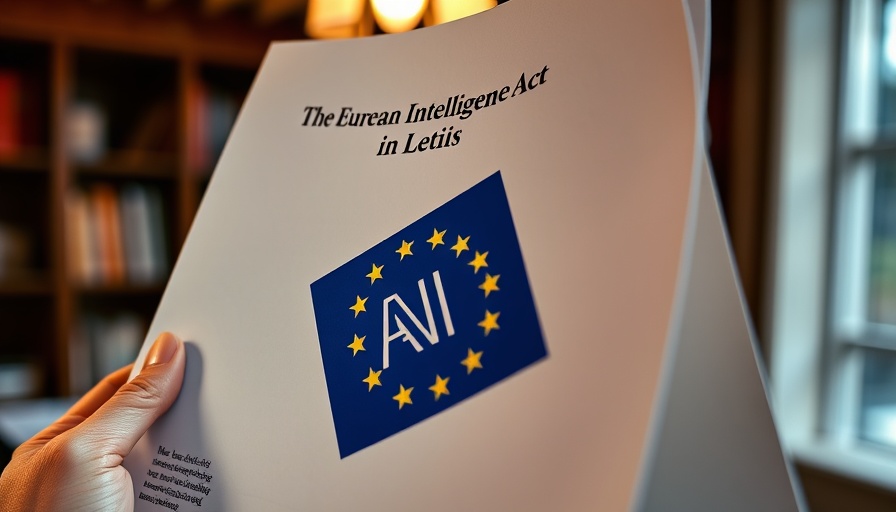
The Future of AI Regulation: A Six-Month Delay
In a significant update from Brussels, the European Commission has announced a delay in implementing the much-anticipated Code of Practice designed to support compliance with its groundbreaking artificial intelligence (AI) regulations. Initially expected to launch in May 2025, the new timeframe pushes the introduction to the end of that year, opening up conversations about the implications for businesses and the evolving tech landscape.
Understanding the AI Act and Code of Practice
The Code of Practice is aimed at assisting thousands of companies across Europe as they navigate the EU's AI Act regulations. These regulations focus on large language models (LLMs) such as OpenAI's ChatGPT and similar technologies developed by industry giants like Google and Mistral. The EU's proactive stance aims to safeguard ethical usage while fostering innovation, presenting both challenges and opportunities for tech firms and investors alike.
The Importance of Compliance for Companies
For many businesses, especially those involved in tech, understanding and adhering to these rules is crucial. Non-compliance could result in significant financial penalties and reputational damage. Consequently, the six-month postponement may provide companies with additional time to strategize and align themselves with the legal framework, giving them a competitive edge in a rapidly evolving sector.
Investment Opportunities in AI and Technologies
This delay could also impact investor sentiment towards stocks in the tech sector, especially those closely linked with AI advancements. As the market reacts, investors may want to focus on stocks that exhibit resilience and adaptability in the face of regulatory uncertainties. Sectors such as healthcare and sustainable investing could see a shift in interest as regulations clarify the rules of engagement.
Preparing for Changes in the Stock Market
The upcoming Code of Practice presents a pivotal moment for stock market news and investment strategies. Investors should consider how these regulations could affect portfolio diversification and risk management. For example, as certain AI companies may face stricter hurdles, others could benefit from enhanced credibility attached to regulatory compliance, potentially leading to growth stocks positioned for long-term success.
Advice for Investors Amid Regulatory Changes
As the EU prepares for these regulatory shifts, investors are urged to examine their current strategies critically. Market corrections can occur when unexpected changes take place, so implementing risk management strategies and employing tools for investment research will be essential. Investors should look into alternative investments like sustainable and ethical investing, which not only aligns with emerging trends but also prepares them for the regulations focused on responsible AI usage.
Conclusion: Staying Informed and Adaptable
With the future of the AI industry shifting under the EU’s regulatory framework, the best path forward for both companies and investors is to stay informed. As developments continue, engaging with ongoing market analysis and keeping an eye on the broader economic indicators will equip stakeholders with the insight needed to make informed decisions. Whether through AI investing, real estate, or alternative investments, adaptability will be key as we navigate these new waters.
 Add Row
Add Row  Add
Add 



Write A Comment